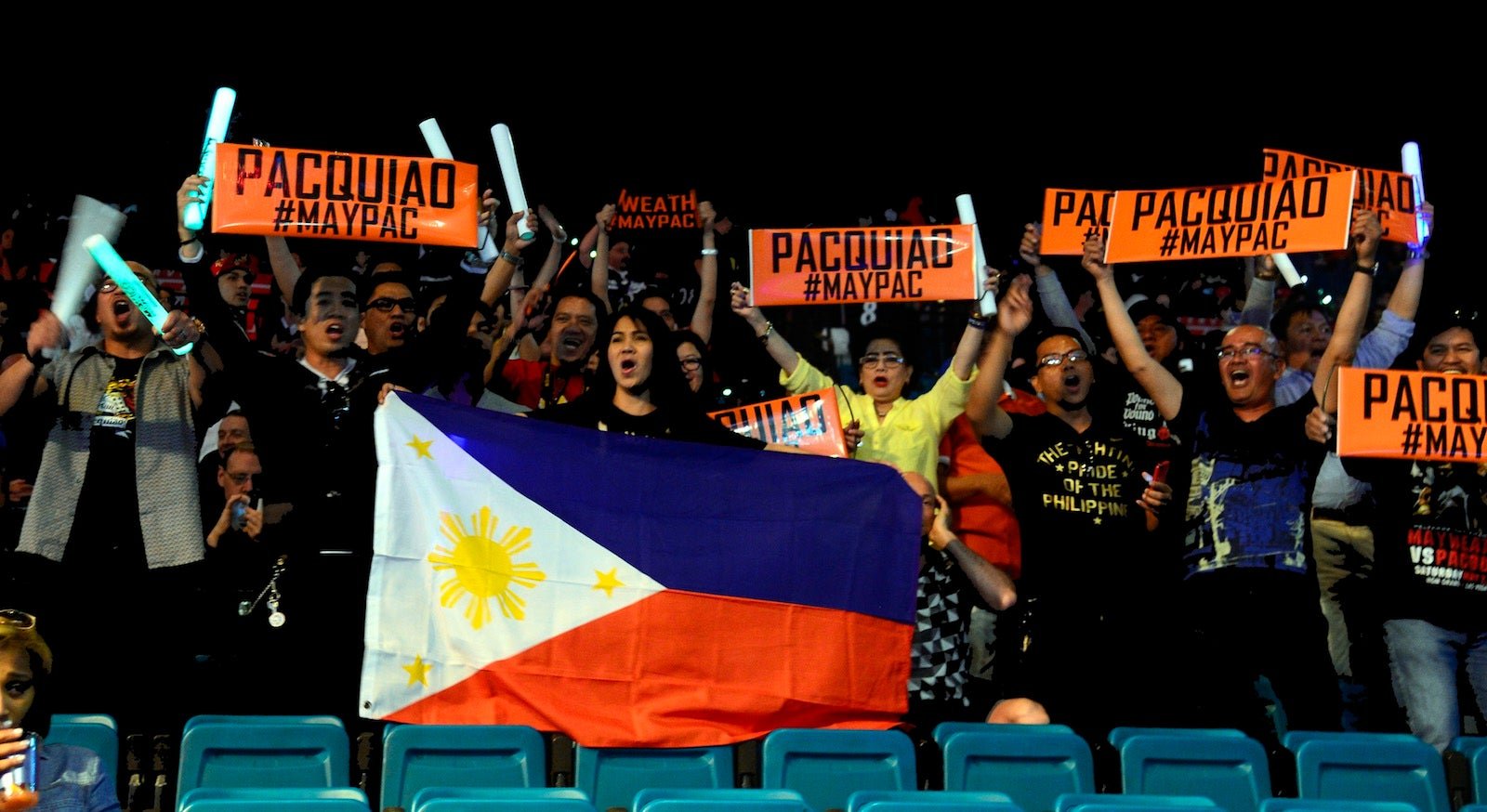Pacquiao’s fight tonight may be the best thing he can do for the Philippines
It is the morning of Mayweather v. Pacquiao in the Philippines, but it feels like Christmas.


It is the morning of Mayweather v. Pacquiao in the Philippines, but it feels like Christmas.
In the lead-up to the fight between Filipino boxer Manny Pacquiao and the undefeated Floyd Mayweather, Pacquiao-related merchandise flew off shelves in the Philippines, according to Agence France Presse, and a limited edition run of postage stamps in Pacquiao’s likeness sold out after two days. On May 1, an editorial published by the Philippine Daily Inquirer’s website urged Filipinos to start praying for Pacquiao’s success.
Pray they did. That night, crowds attending evening mass overflowed the building of the Immaculate Conception Parish in Manila’s impoverished Tondo district. Michael Jordan Castillo, the 26-year-old elected chairman of one of Tondo’s 167 precincts or barangays, told Quartz that his constituents will be “happier on May 3 than ever before” if Pacquiao wins. But while everyone in Tondo seems to agree that they’ll cheer their countryman in the boxing ring, expectations are more tempered than you might expect.
Pacquiao has been described in Western media as a demigod to Filipinos, but not one Manila resident I encountered was so susceptible to his cult of personality as to agree that Pacquiao, who also holds public office as a congressman, might one day make a good president. Nor is he held as a paragon of goodness—workers I interviewed at the Waterfront Pavilion Hotel and Casino in capital city Manila brought up rumors of Pacquiao’s mistresses and gambling, while a local parish priest serving the crime-ridden area of Ermitage speculated that Pacquiao had ties to organized crime.
In 2011, Pacquiao vowed to take on poverty in the Philippines as his “greatest fight.” Today one in four Filipinos still live in poverty, according to the latest figures from the Philippines Statistics Authority, and in disadvantaged Tondo, Boy Rodriguez, 42, dismisses the national superstar. “May 3 [when Mayweather v. Pacquiao will air in the Philippines] will be a national holiday and crime and drug usage will fall to zero,” says Rodriguez. “But on May 4, drug users will resume their habits.”
“If there is one thing I would ask of Manny Pacquiao,” jokes Annalin Romero, 29, resident of nearby Barangay 158 . “It’s if [he]could stop the demolishment of my home from happening.” Her neighborhood is set to be dismantled this month.
Tondo, like the rest of the Philippines, has shut down for the fight. Everyone is glued to their televisions screens, and ironically, for as long as Pacquiao remains in the ring with Mayweather, chances are high that he will indeed singlehandedly lower the crime rate of an entire country, stop an Islamic insurgency, and boost the collective morale of a global diaspora. But that won’t last, and everyone here seems to know it.